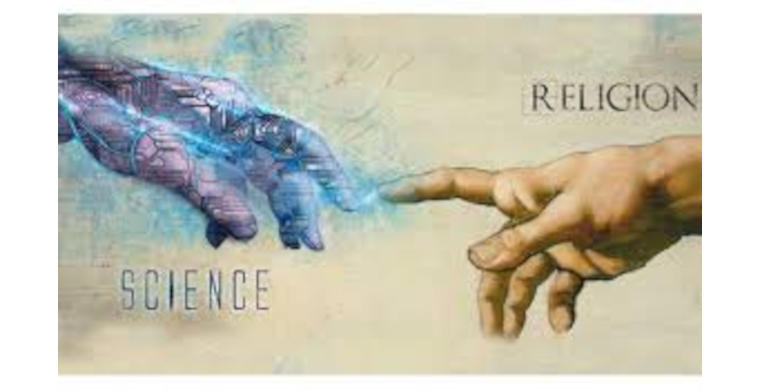Apologetics and Science: Translating the Language of Faith to a Culture of Scientism
By Bishop Ray Sutton
From FACEBOOK
April 2, 2024
That's the topic for our upcoming Anglican Way Institute Conference. It's a timely subject. Much development in the scientific realm and the technological world often do raise important theological and ethical questions for our world. Some presuppose that science and Christianity contradict each other. But is the apparent tension necessarily so?
Galileo in 1633 was declared a heretic by the Church because he concluded, based on his scientific research, that the earth was orbiting the sun. During the Middle Ages the Church had adopted a geocentric view of the universe. The earth is stationary. The sun moves around it. When Galileo looked through one of the first telescopes, he saw something quite different. Every indication was that the earth was moving around the sun. The sun is the center of the universe. Thus began a massive paradigm shift from geocentric to heliocentric.
But did it actually mean that science and the Bible are in opposition to one another? Not really. It only meant that what theologians had said about Scripture was different from Galileo's scientific conclusion based on the evidence. What is often overlooked, however, is the other fact that Galileo was a Christian. He said, "that the glory and greatness of Almighty God are marvelously discerned in all His works and divinely read in the open book of Heaven."
He didn't reject Scripture, but he did reject how others had misapplied the language of "the rising and setting of sun" to be a scientific, rather than a phenomenological way of speaking. When it comes to the natural world, the Bible offers redemption from the perspective of the viewer, what is seen. Even scientists do the same. In everyday speech they'll refer to the sun rising and setting, when they know that the sun is not moving per se. That is, the Word of God is not a textbook on science. It reveals how to know Jesus Christ as Lord and Savior.
Christianity and science are therefore not necessarily at war with each other. It's just that they're not necessarily intending to ask and answer the same questions.
Science is not equipped to answer questions about God, whether He exists or how He can be known. Holy Scriptures do not tell us about neurons and protons, how the neurological system of the human body works, and so forth. But this doesn't mean Christianity and science lack a need for each other.
The late Pope John Paul II observed, "Science can purify religion from error and superstition; religion can purify science from idolatry and false absolutes. Each can draw the other into a wider world, a world in which both can flourish."
The Pope's astute insight brings us to our conference. Our focus will be on the incredible apologetic value of science for Christianity. Rather than undermining Christianity, science can serve as a kind of pre-evangelistic tool. It can open one's eyes to the wonder of God's creation to consider the impossibility that what lies before us in the physical world is a product of time plus chance.
Christians believe that the Bible reveals God as Creator. The world is His creation. The New Testament even goes so far as to say that the natural world reveals who God is down to His very attributes (Romans 1). It means the world and science are not inherent enemies of Christianity. Actually, science can be a great friend of the faith, as it has been through much of history. After all, the first modern scientists were Christians, theologians, and clergy.
Our keynote speaker for this year's AWI Conference is an example, the Rev. Dr. Alister McGrath. He is a scientist and a theologian, a rare combination these days. His first doctoral degree was in science (molecular biophysics) at Oxford University. He has distinguished himself as a theologian as well. He has been a professor at Wycliffe Hall where he was my own dissertation advisor. He is currently a Senior Research Fellow at the Faculty of Theology and Religion at Oxford University, having previously served as Professor of Historical Theology and then Andreas Idreos Professor of Science and Religion at Oxford.
Therefore, we have a unique opportunity to learn from a powerful Christian scholar and scientist. I urge you to come and bring young people. They need to get to know Dr. McGrath. We must help the next generation to realize the incredible links between Christianity and science. I look forward to seeing you.
The Most Rev. Dr. Ray R. Sutton is Presiding Bishop, Reformed Episcopal Church and Dean of the Province of the ACNA














